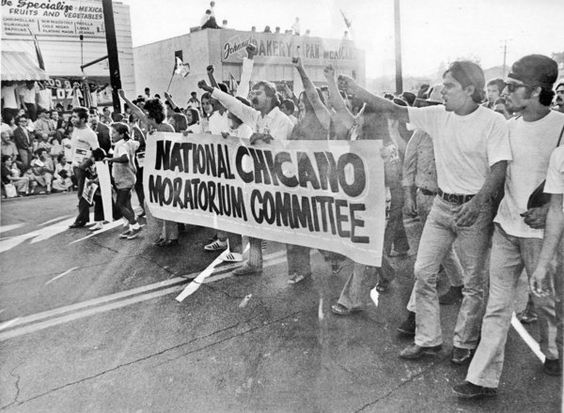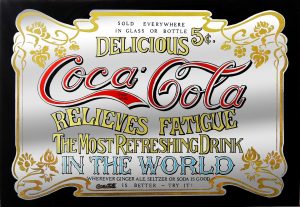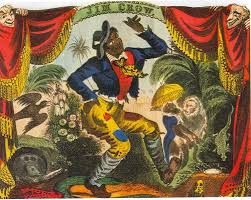On August 29, 1970, in the midst of more than 20,000 people, news correspondent Ruben Salazar walked alongside fellow Mexican Americans covering the Chicano Moratorium March in East Los Angeles, a protest to the Vietnam War. Initially supported by the Mexican-American people, the war began to be questioned and rebuked after Chicanos began to be drafted in disproportionate amounts.1 Mexican-American men were laying down their lives for a country that did not respect them, their families, or their culture. The Chicano Moratorium brought out hundreds of spectators with the jovial sounds of Mexican music and a convivial environment.
The rally would continue throughout the day until it was abruptly broken apart by the Los Angeles Police Department (LAPD) with tear gas canisters. Many Chicanos fought back by throwing back the same tear gas projectiles that were being used on them, and anything else that could serve as a weapon.2 Ruben Salazar had been resting in a local bar when the chaos broke out. A tear gas projectile was shot into the bar to smoke out a reported “armed individual,” hitting Salazar in the head and killing him instantly.3 News of his death was broadcast widely, and it significantly impacted the Los Angeles Chicano community, as Ruben Salazar was one of the few mainstream journalists to address and voice the needs of the Chicano Movement.

Who was this Ruben Salazar who was killed that August day? Ruben Salazar was born March 3, 1928 in Ciudad Juarez, Mexico. During his infancy, his family moved to El Paso, Texas. Salazar would go on to attend school and grow to love reading in his early years. Upon graduating from high school, he enlisted in the army and served for two years after becoming a naturalized citizen.4 With the G.I. Bill supporting him, Ruben Salazar attended Texas Western College and graduated with a bachelor’s in journalism in 1954. He then went on to become an investigative journalist for El Paso Herald-Post. Ruben Salazar’s work paid off, and he obtained a position at the LA Times, becoming the first Mexican-American journalist to have his own column.5

Much as many other immigrants, Salazar grew up in between two very distinct cultures. Refusing to be defined by his ethnicity and background, he became successful through his perseverance. Although many characterized him as a cosmopolitan man with worldly views, he kept himself grounded by never losing sight of where he was from. After working at the Los Angeles Times for eleven years, he left his position to become a news director for KMEX, a Spanish-speaking news station in Los Angeles, California.6 Ruben Salazar understood that he had a privilege and a voice in the media that others did not, and so with the help of his new position, he began to shine a light on the troubles the Mexican-American community had to face, such as police brutality and racial discrimination especially in East Los Angeles.7 It became common knowledge that Salazar and the LAPD did not get along very well, due to his high intrusion into political matters and his exposure of the LAPD’s efforts to diminish the Chicano movement. He became renowned for his investigative tactics and for his unwavering courage, which he demonstrated when obstacles came his way.
His untimely death did not silence the Chicano movement; rather, Salazar became a martyr for his people. After his death the Chicano Movement gained momentum. Ruben Salazar was not an activist nor a leader in the Movement, but he addressed the basic needs and frustrations expressed by the people through his writings. He was the example of the American Dream, a symbol that progress was possible. Ruben Salazar’s legacy left behind a definition to what it meant to be a Chicano and strengthened the pride behind being one.
- Ruben Salazar and Mario T. Garcia, Border Correspondent: Select Writings, 1955-1970, ed. Mario T. Garcia (California: University of California Press, 1996), 1-2. ↵
- Ruben Salazar and Mario T. Garcia, Border Correspondent: Select Writings, 1955-1970, ed. Mario T. Garcia (California: University of California Press, 1996), 2-3. ↵
- Edward J. Escobar, “The Dialects of Repression: The Los Angeles Police Department and the Chicano Movement,” Journal of American History 79, no. 4 (March 1983): 1483-1484. ↵
- Salem Press Encyclopedia, January 2016, s.v. “Ruben Salazar,” by Ewing Jack. ↵
- Salem Press Encyclopedia, January 2016, s.v. “Ruben Salazar,” by Ewing Jack. ↵
- Salem Press Encyclopedia, January 2016, s.v. “Ruben Salazar,” by Ewing Jack. ↵
- Edward J. Escobar, “The Dialects of Repression: The Los Angeles Police Department and the Chicano Movement,” Journal of American History 79, no. 4 (March 1983): 1486-1487. ↵



30 comments
Benjamin Pampackal
The chicano movement plays a huge role in the freedoms that people have today. No matter how developed we are, racism will always be in the world. The death of Ruben Salazar really impacted the chicanos from Los Angeles to show that one of their own people was innocently killed for something he did not have. A person that voiced the opinions of his own people, was targeted and killed because they saw as a threat to their society.
Ruben Basaldu
Ruben Salazar played a huge role in trying to obtain equal rights for Chicanos. I remember learning about Salazar back in high school and everything that he contributed to the cause that he felt so strongly about. He wasn’t trying to be an activist but only wanted to be a voice for the people that he cared about so much. I enjoyed reading this article and thought that for the size that it was it did a very good job at explaining what Salazar was trying to accomplish.
Oscar Ortega
This article is just the right length. It tells the story of Ruben Salazar for those who did not know of him, as I did not, and perfectly illustrates his importance in American history succinctly but clearly. It is nothing short of a tragedy that he passed as he did, but his work was clearly needed and valued, and it is good to know that even after his death he is still remembered and honored for using his profession and skill to stand up for those who were prevented from standing up for themselves.
Damian Jennings
I am familiar about the group denoted as chicanos but I was never informed about the movement that they participated in, nor was i informed about the name Ruben Salazar. This man took charge and used his authority to his advantage, to give the chicano community a voice that was shut out just like many other minority groups. Well written article and great sources!
Sarah Nguyen
The author did a great job of addressing the questions I had – initially, I needed more of an explanation of Salazar, as I felt there wasn’t enough information at the beginning. However, as I continued reading, the author incorporated his story, and explained why the public was so angry on his behalf, as he was a activist working to be a voice for those who couldn’t have one. The Vietnam War draft was very race based, as it targeted people of color, and many do not know his, so I’m glad there was an article that recognized this in their writing! Great job.
Kimberly Simmons
I have heard of Salazar before, but certainly not in such detail. I enjoyed this article because it not only displayed perseverance, but the fight for freedom. It is so uplifting to hear of the great things Salazar accomplished in his lifetime, and though his death was tragic, it did not suppress the voices of those who sought justice. Excellent article!
Didier Cadena
Before reading this article, I had no idea who Ruben Salazar was. It was really interesting to read about the man that Salazar was and how much he was a voice for the Chicano Movement. It seemed that he really cared about his people and he used his privilege to shine a light on the issues that were affecting the Hispanic Community in East Los Angeles. The article does a great job of putting all of the information together and still it interesting enough to read.
Carlos Vazquez
The Vietnam war was one of the most debated topics in America in the 20th century. The Chicanos all over the country were facing struggles of racism. Salazar became an example of what most Mexican Americans go through in this country. His death and fight for Chicano rights will be remembered for a long time. This article is very well written and informative.
Rafael Lopez-Rodriguez
I remember learning about him in my Civic Engagement class. What he did for the people of his race and community is unbelievable. Fighting for the rights of Chicanos and not resting until they get what is just for everyone. His actions will forever be remembered by his people and the fact that the Chicano community continued to follow it on is great because after his death he is now an inspiration for these people.
Ricardo Salazar
I never heard about the Chicano movement or have heard the name Ruben Salazar before until now. The significance of this movement is noteworthy. I enjoyed reading about this article because he knew his position was one not many have and therefore used it to his advantage bring attention to this ordeal. His purpose was not to be an activist but a voice for the people that others may have not granted them. I enjoyed reading this article. It was well-written and informative.